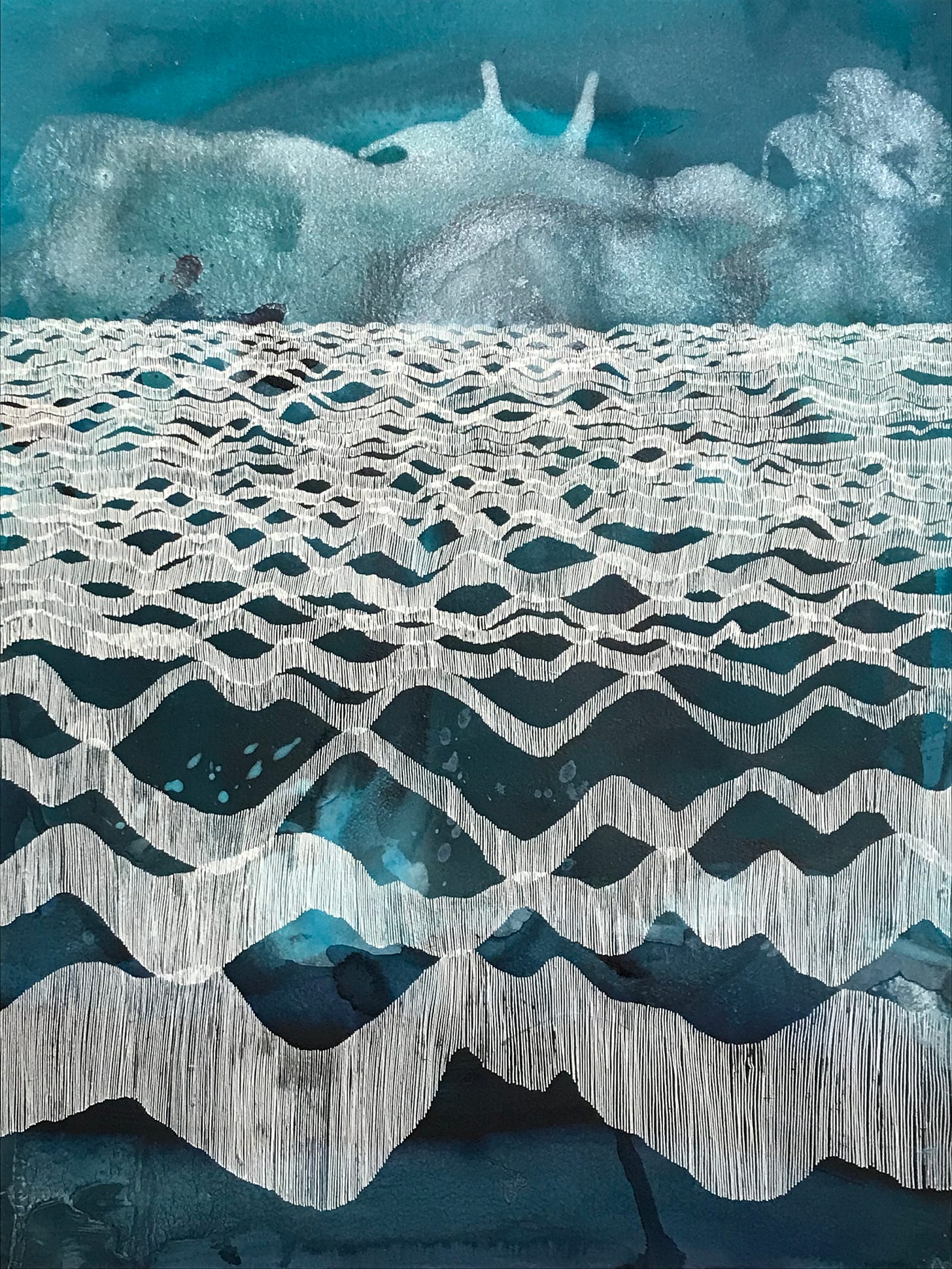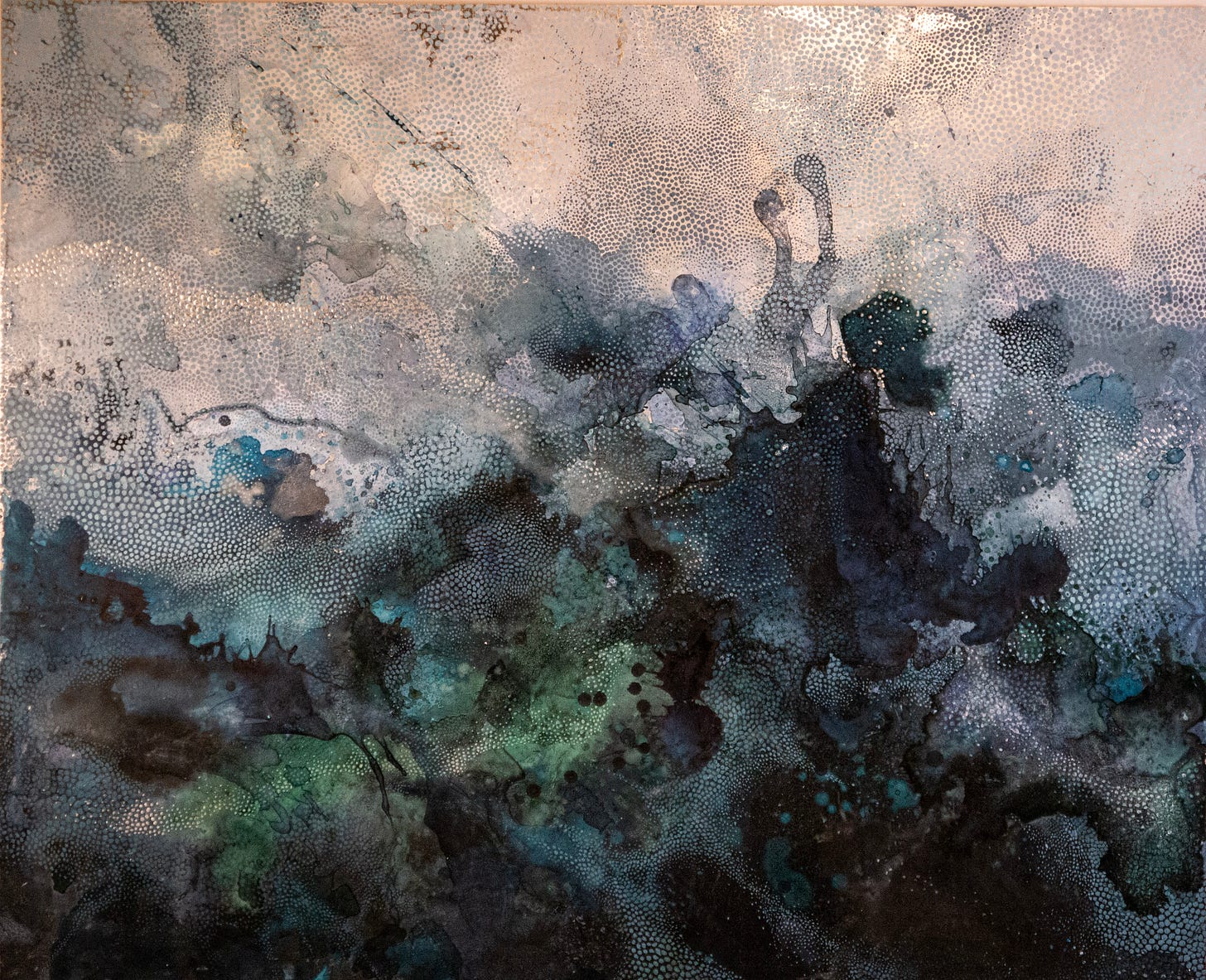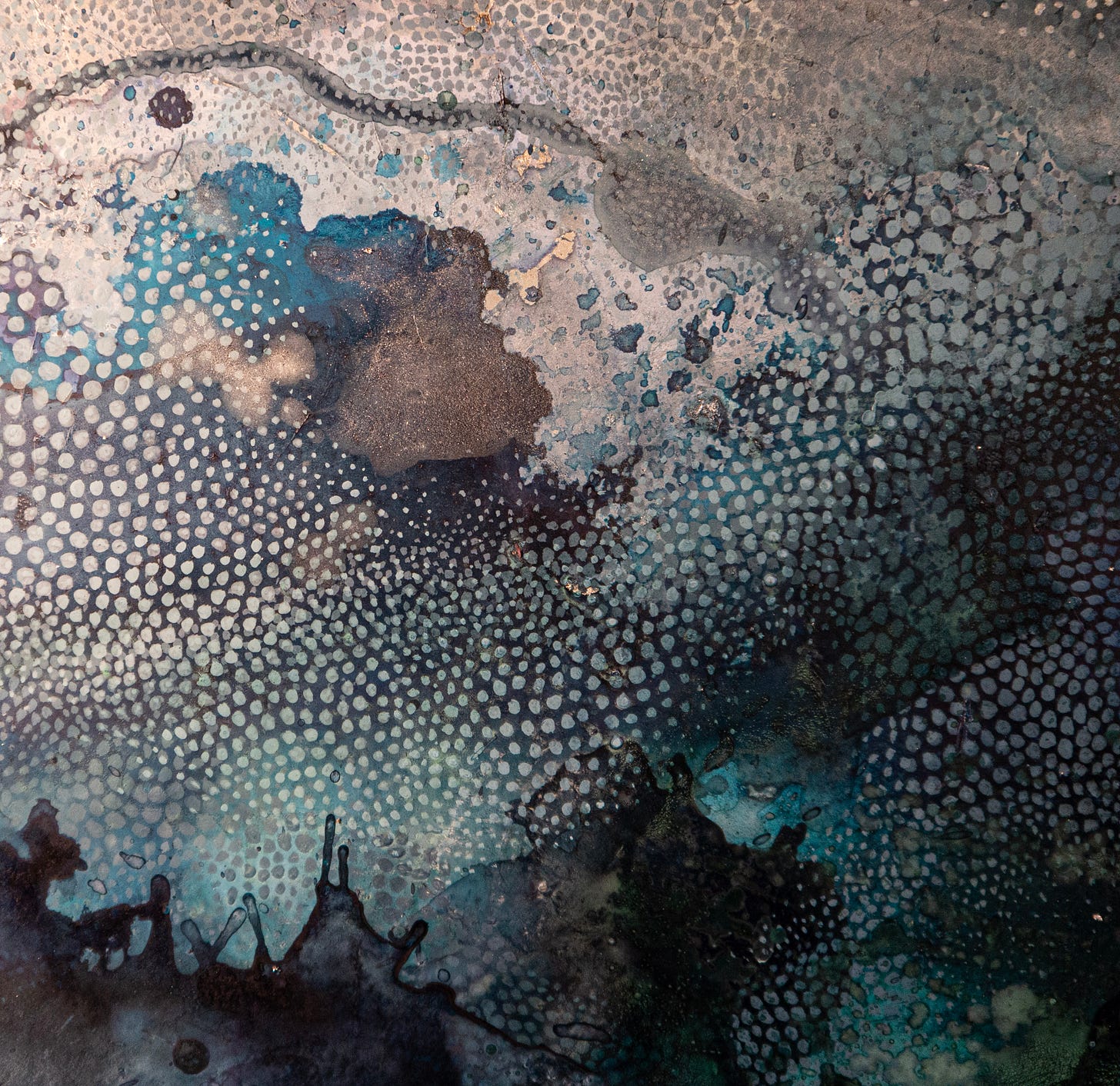I’ve been working on a painting, in fits and starts, for a couple of months now. I had a push on last week to finish it. Indeed I was working on it during last week’s Zoom Co-Working Session on Wednesday so it might look familiar if you joined us.
I felt like I knew where it was heading. The end was in my sights. It’s a good feeling when it comes. You just want to get in the studio and crack on, see the end results.
But at the end of the next day’s work I stepped back from it and realised it had gone wrong. Not horribly wrong. Not irrevocable. Just wrong enough to not become the painting I had thought it was going to be. Just wrong enough to mean I had to stop and rethink. It was frustrating. I had a deadline I wanted to submit the painting for and now it wouldn’t be ready in time.
There’s a lot of ego wrapped up in that. A lot of grasping after something, wanting something: acclaim, success, money, profile, the satisfaction of making work you’re pleased with. And here was this painting, being stubbornly…meh.
This, my friends, is the ‘cringe stage’.
Ira Glass talks about the creative gap you have to work your way through at the start of a creative career, when you have great taste and lofty aspirations but don’t yet have the skills and experience to make stuff that that matches up. Everything you make or do or write falls short.
As Glass explains in this clip, a lot of people give up at this stage, thinking they’re no good. His words are blunt, but ultimately encouraging. He says the only way through this stage is to keep making work. Lots of it. Just keep at it. Tough it out. Eventually you’ll get better. It’s a long apprenticeship.
But, ah, I am here to tell you that the cringe stage doesn’t ever go away, my friend. Not entirely. Every piece of creative work goes through a cringe stage. Perhaps several.
In fact sometimes it feels like there’s a law of entropy at work here, that every piece of creative work we do actively wants to be mediocre, sloppy, woolly, baggy, just plain bad. The only reason there is any good work out there at all is because someone has been diligently tweaking and tinkering, propping it up at every stage of the way.
Making good art takes persistence and diligence. It requires of us a certain rigour.
This sounds like crippling perfectionism but I don’t think it is. I think it’s care. Care for your work, and care for your audience.

I taught at Art Schools for many years. One time I was going through student submissions with our external examiner at the end of the semester and we opened one portfolio that I was concerned about. She looked through the student’s work for a while in silence. And then she said ‘Where’s the love here? I don’t see the love.’ She was right. The work felt uncared-for, and as its viewers we too felt uncared for, like we didn’t really matter to the person making the art.
The art that I really love, whatever its medium, is steeped in this work of care. As I engage with it, it feels like I am being cared for too, seen and respected, perhaps challenged, sometimes soothed, always nourished in some way. This work of care doesn’t mean icy perfection. It means that I can tell that every decision has been made deliberately – to polish this surface or to leave this edge rough, that sentence gorgeously flowing or this one disjointed, this narrative fragmented or that plot line tight and pacy.
Here’s the painting in question. It’s not quite in full-on cringe stage any more, as I threw some more paint at it to take the edge off its awfulness so I could more calmly appraise it. But it hasn’t turned the corner yet.
Really, I am not fishing for compliments. I do not want you to tell me to leave it as it is or that it’s all going to be just fine. I just want to share with you that any meaningful creative project is going to feel like a journey into the unknown sometimes, that your efforts will often fall short, but that if we can reframe perfectionism as care, as love even, then we can find the forbearance and patience to keep going. I don’t know if this painting will ever come good. But I do know that it will have taught me something valuable.
I’m offering a Zoom Co-Working Session again today (Wednesday 17th January) at 3pm UK time. I’m calling it our Life Raft. We can climb in together and weather the choppy seas of distraction, and work that won’t co-operate with us, to get our creative work done. Come and join us!
I’ll open the room at 3pm, we can say a quick hello, then quietly get on with our work in the shared space until 4pm.
And if you can’t make the time here’s the recording from last week, as some of you asked for it. The chat is there too with links that people shared, which you also asked about. You’ll need this password to access it: %6dmFRQ#
That’s all for this week. Thanks for travelling with the Life Boat!
Sam
If you’d like to read more like this:
Be more Agnes...
If you’ve read my book The Clearing you’ll know I’m a big fan of the artist Agnes Martin. I’ve been thinking about her work and life a lot recently. When the world is falling to bits and it feels ridiculous to spend my time drawing pictures I remind myself of what great art has brought to my life.









Thank you for stating that what I believe is true for all creative work "care" is at it heart. However for me as a Brit US immigrant your painting spoke to me in the confusion of our day and time. Thank you for sharing it.
I am so taken with this concept of care and the ways that we can consider its various faces in our creative work, Sam. Thanks for these words. I'm running a Scots webinar this afternoon (which as a creative project has gone through its own cringe stage) so can't come along at 3pm, but sure it'll be absolutely lovely.